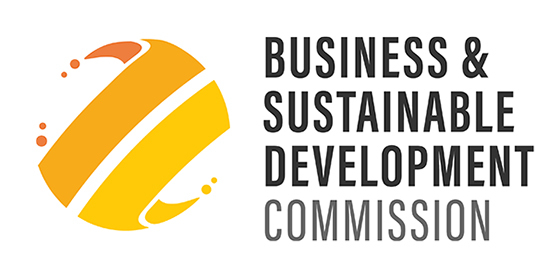Water, and more precisely uneven, unstable and unsecure access to it, is one of the largest global risks. Now and in the future. This has been emphasized on several occasions, at the latest just this week at the World Economic Forum's annual summit in Davos. The issue is serious, and serious enough that the UN has made universal access to water by 2030 one of its Global Goals. 17 extraordinarily ambitious goals, which when reached can bring the world to a significantly better place.
During the course of 2016, I've worked as commissioner of the Business and Sustainable Development Commission. Here, I myself along with other fine representatives from the business and NGO sphere, and with support from national institutions and international organizations, have looked at the possibility of building sound business around solving the global issues. Coming from a water technology company, I've of course spent a fair share of time looking at exactly water. Particularly on how we can make it available in a sustainable way. One way of doing that is by putting a fair price on it.
We need a fair price, because we need to make it realistic to build a business around water. In that way, we incite people to make water available in their local communities. With sound business models surrounding it, we make funding for water points available, which can be used for preventive maintenance and aid the water solutions in becoming self-sustaining. Additionally, putting a price on water can, in my mind, play an effective part in promoting resource efficiency. Water should be priced in a way, which reflects the costs surrounding making it available, but also reflects its value. Or, in other words; it should simply be too expensive to waste. That could play a part in preventing the heavy water loss in distribution, which in some countries reaches 60 per cent.
Having said that: I am painfully aware that some places in the world, there are simply no ways of building sustainable business models around, in this case, water. The economic resources are not available. And the people living there must be reached too. Here, the answer, however, is not dumping prices on water. Rather, it is seeking partnerships, which in a sound and safe matter can make resources available to the people in need.
Those are just a few thoughts around water. The work in the commission has introduced me to several others. And it has shown me that there is a vast potential in solving global challenges in a way, where the solution to one problem spills over and makes a positive difference in another area. It's called Better Business, Better World, and you can have a look at it and its findings here.
I urge business leaders to take action, and if in doubt whether to do so or not, we should project ourselves to the day of our retirement speech: Should we be told that we primarily made shareholders richer, or that we were part of a making a genuine positive difference to people and our planet? Sustainability is about ways of conducting our very core business - not a department or a report.

